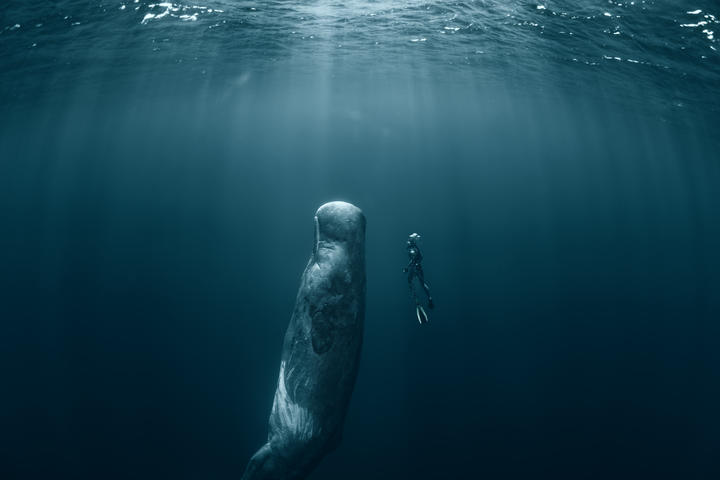This article by RNZ.co.nz is republished with permission under Kaniva News partnerships with Radio New Zealand.
A new report into seabed mining in the Pacific warns of irreversible damage to the marine environment.
The report, ‘Predicting the impacts of mining of deep sea polymetallic nodules in the Pacific Ocean’, is a fusion of more than 250 peer-reviewed scientific and other articles.

The Deep Sea Mining Campaign warns that if nodule mining is allowed to take place in the Pacific Ocean, species such as the Sperm Whale could be adversely affected. Photo: WILLYAM
Compiled in conjunction with the Deep Sea Mining Campaign, it said there was a lack of certainty around the proposed methods of companies seeking exploration licenses in the Pacific.
But the campaign’s coordinator, Helen Rosenbaum, said researchers found the risk of serious environmental damage was high.
“Their conclusion is that the impacts of mining deep sea nodules in the Pacific ocean would be extensive, severe and last for generations, causing essentially irreversible species loss and ecosystem degradation,” she said.
“They also conclude that the jury is totally out on the economic benefits of this.”
The Deep Sea Mining Campaign, together with MiningWatch Canada, urged Pacific governments to think twice about licensing companies to mine the seabed.
This comes as the focus of a handful of companies and investors zeroes in on polymetallic nodules, which typically comprise several minerals including nickel, cobalt, copper and manganese, in the Clarion Clipperton Zone in the north-eastern equatorial Pacific, and in the exclusive economic zones of several nations.


Polymetallic nodules Pacific ocean Photo: Velizar Gordeev. All rights reserved.
Tonga, Nauru and Kiribati recently granted exploration licenses to subsidiaries of, or companies linked to, Canada-based DeepGreen Metals.
Dr Rosenbaum said these countries should consider the experience of PNG, which lost out by investing in Nautilus Minerals’ failed Solwara mining project in the Bismarck Sea.
“The people who were present in that company at the time, they ramped up Nautilus’ share price, and they jumped ship at the height of that share price with quite nicely enhanced personal wealth, and they started a new company Deep Green.”
Deep Green said its mining plans were geared around minimising environmental impacts with an aim for “zero tailings”.
In its promotional statements, Deep Green said confronting climate change and meeting the resource needs of nine billion people were “the biggest challenges of our time”.
“Electric vehicles and renewable energy are part of the solution, but we know that scaling these globally will require hundreds of millions of tons of new metals.
“We believe that producing these urgently needed battery metals from polymetallic nodules from the deep ocean is society’s best option.”


Seabed mining Photo: Supplied
- PNG undersea mining law close
- NGO calls for Pacific-wide ban on seabed mining
- Canadian miner in PNG to be liquidated following restructure
